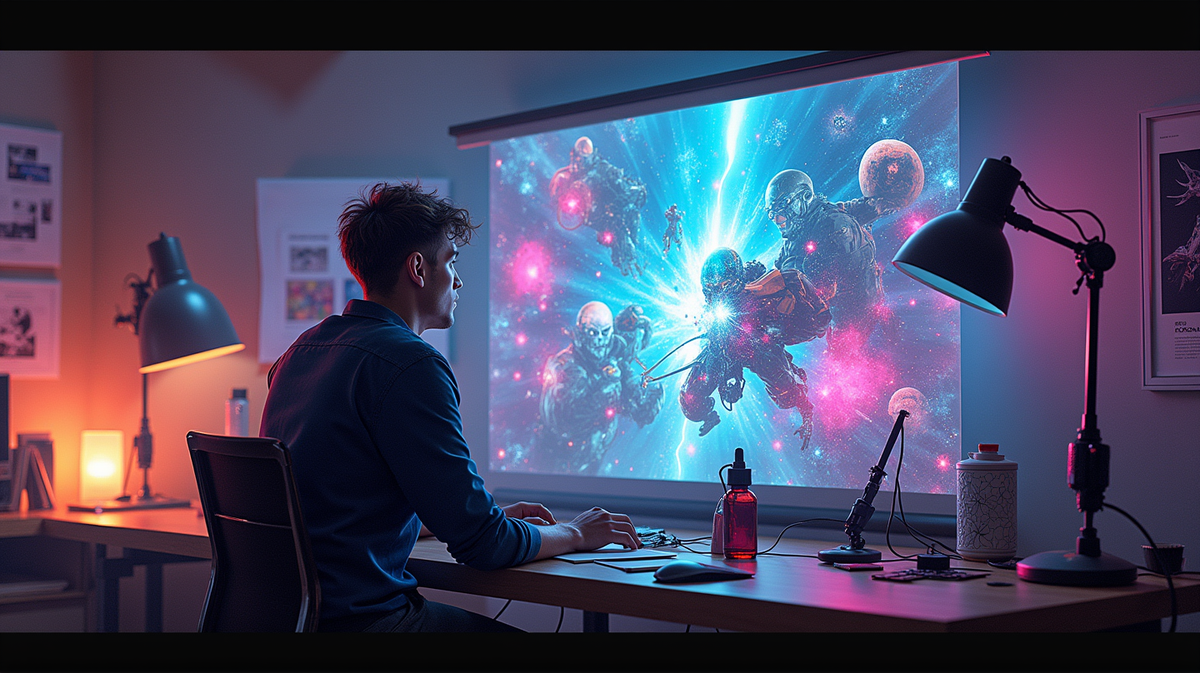Why Legendary Game Director Hideaki Itsuno Left Capcom for a New Adventure
Renowned for his work on Devil May Cry, Hideaki Itsuno embarks on a fresh journey with Lightspeed Studios to create an original AAA action game.

Renowned for his groundbreaking work on the Devil May Cry series and Dragon’s Dogma, Hideaki Itsuno surprised the gaming world with his departure from Capcom, his professional home for three decades. At 55, Itsuno decided to step outside the familiar framework of sequels and embark on an exciting venture, aiming to create something entirely new and personal.
A New Challenge Beckons
“Itsuno-san discusses Lightspeed Studios and its plans for a AAA action game,” begins the fascinating window into his decision-making journey. At Capcom, Itsuno breathed life into beloved franchises, but found his creative spirit yearned for something beyond sequels. “It’s not like I don’t want to make them, I do, but it’s hard to balance the time it takes with the personal satisfaction.”
The Transition to Lightspeed Studios
Joining Lightspeed Studios under Tencent’s umbrella, Itsuno hasn’t skipped a beat. Approximately one-third of the 40-member team at his new Osaka studio, which complements the existing Tokyo branch, comprises veterans from Capcom, fortifying an atmosphere of trust and familiarity. Itsuno’s vision—”Very few studios in Japan are taking on the challenge of building original AAA IP from scratch. That’s exactly what we’re doing”—illuminates his bold new direction.
Exploring a “Japanese-Style” Game
Itsuno is pouring his wealth of knowledge into crafting a “Japanese-style” action game. By focusing on captivating animation, character design, and creativity, Itsuno’s team aims to enchant action game enthusiasts worldwide. The likes of Devil May Cry writer Toshihiro Nakagawa and other Capcom stalwarts are at his side, ensuring the project is on firm creative ground.
Commitment to Game Development Efficiency
Despite the complexities of creating a AAA title, Itsuno stresses the importance of pragmatic game-making—striving for high quality within an efficient framework. “As a director, releasing the game is the most important thing. In order to do that, you need to control the deadlines and budget for the company investing the money,” he explains.
Embracing the Future
For Itsuno, leaving Capcom wasn’t just about breaking free from sequels but taking one last chance—”For me, based on my age, this is my last chance.” Would there be any rivalry with future Devil May Cry releases? Perhaps, but its veteran creator is optimistic and proud of what he had achieved. “I thought it was going to be impossible to create something better and I think I managed it. It was the same with Dragon Dogma 2.”
Embarking on this new chapter, Itsuno isn’t simply leaving behind a legacy; he’s laying the groundwork for the future of action gaming. As stated in Video Games Chronicle, its influence can shape the gaming industry’s evolution, offering fresh experiences for fans and gaming connoisseurs alike.





